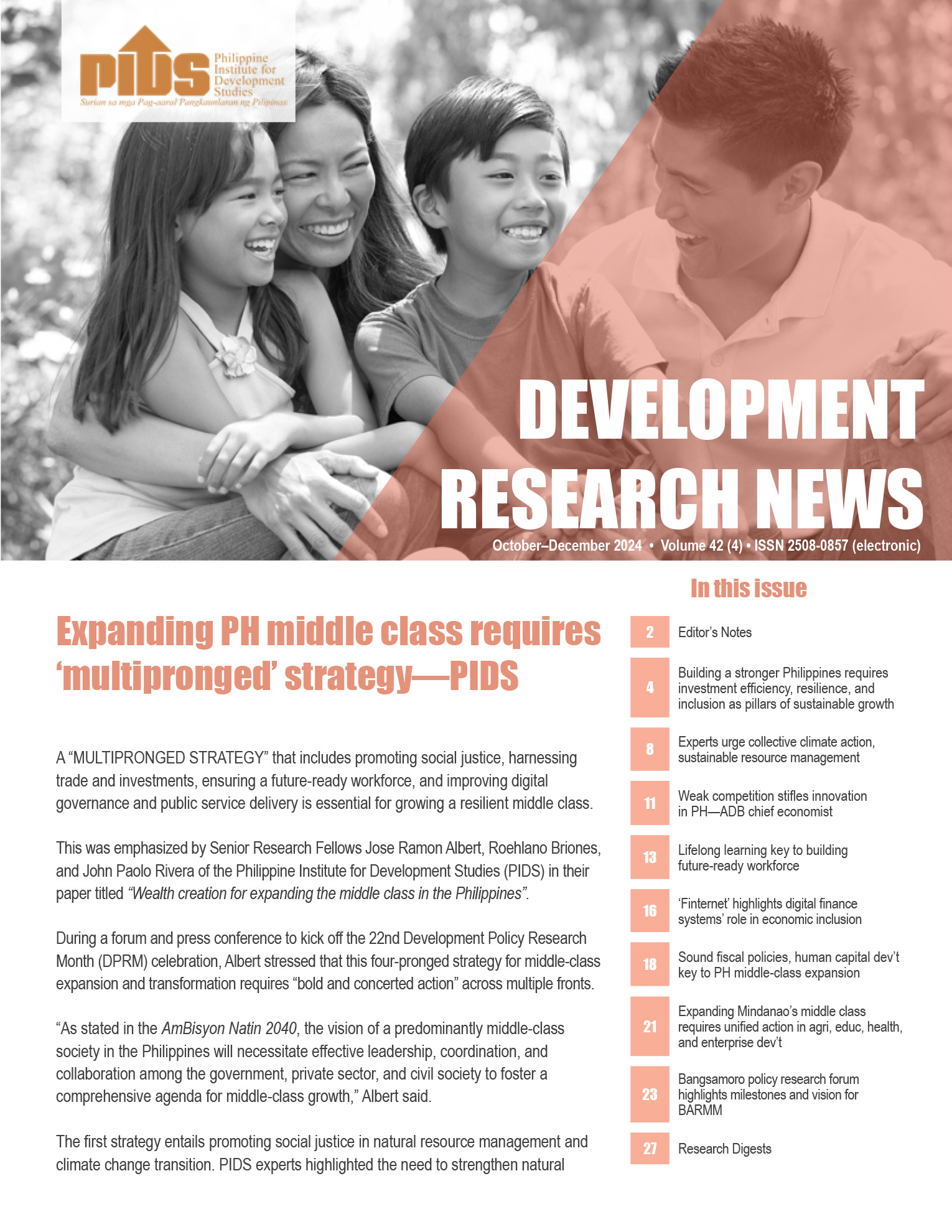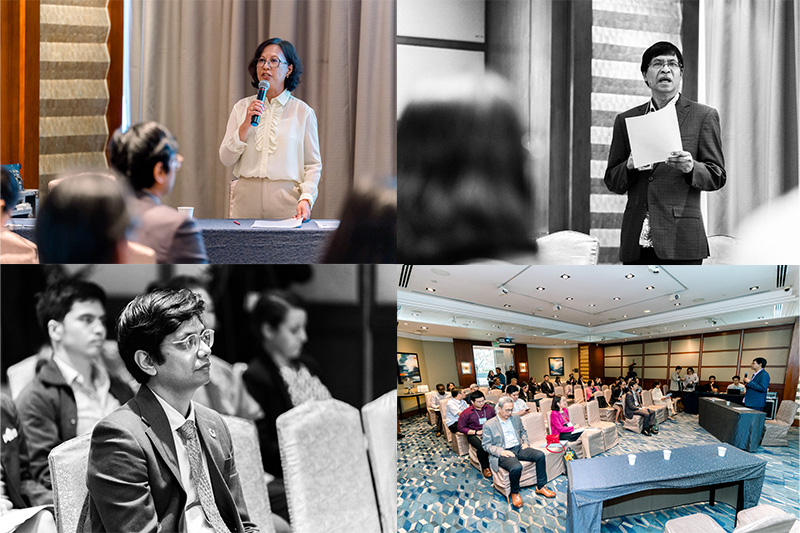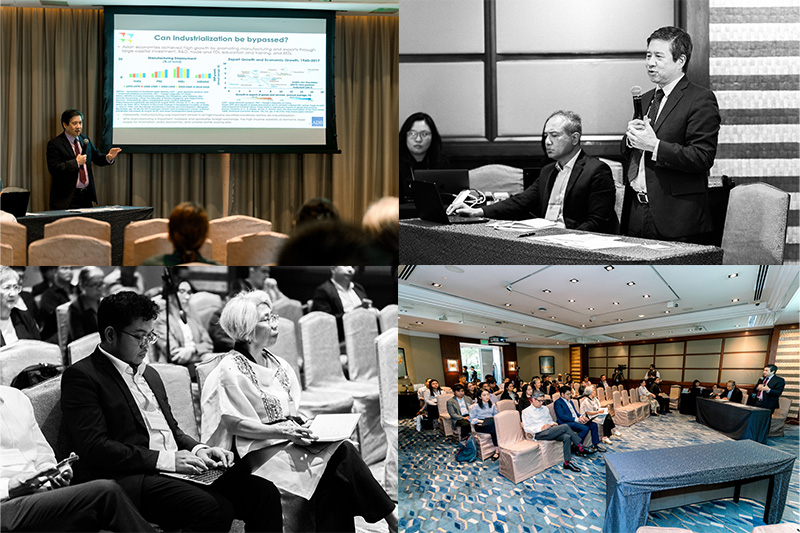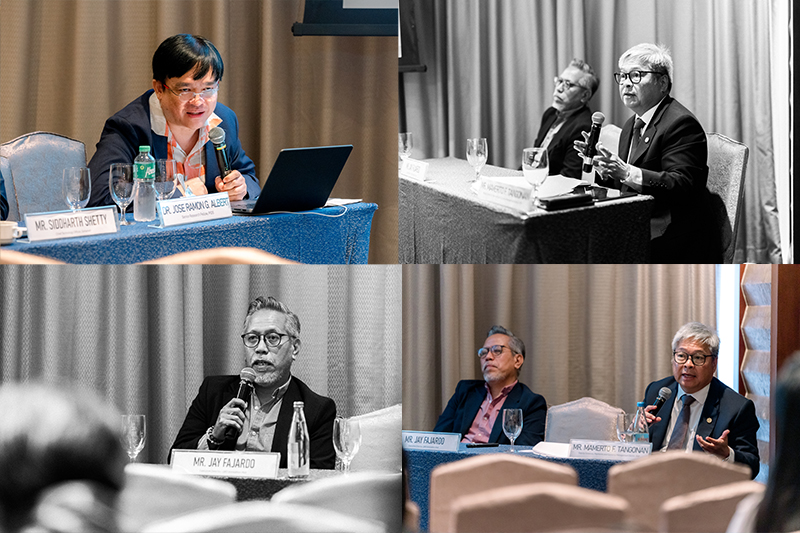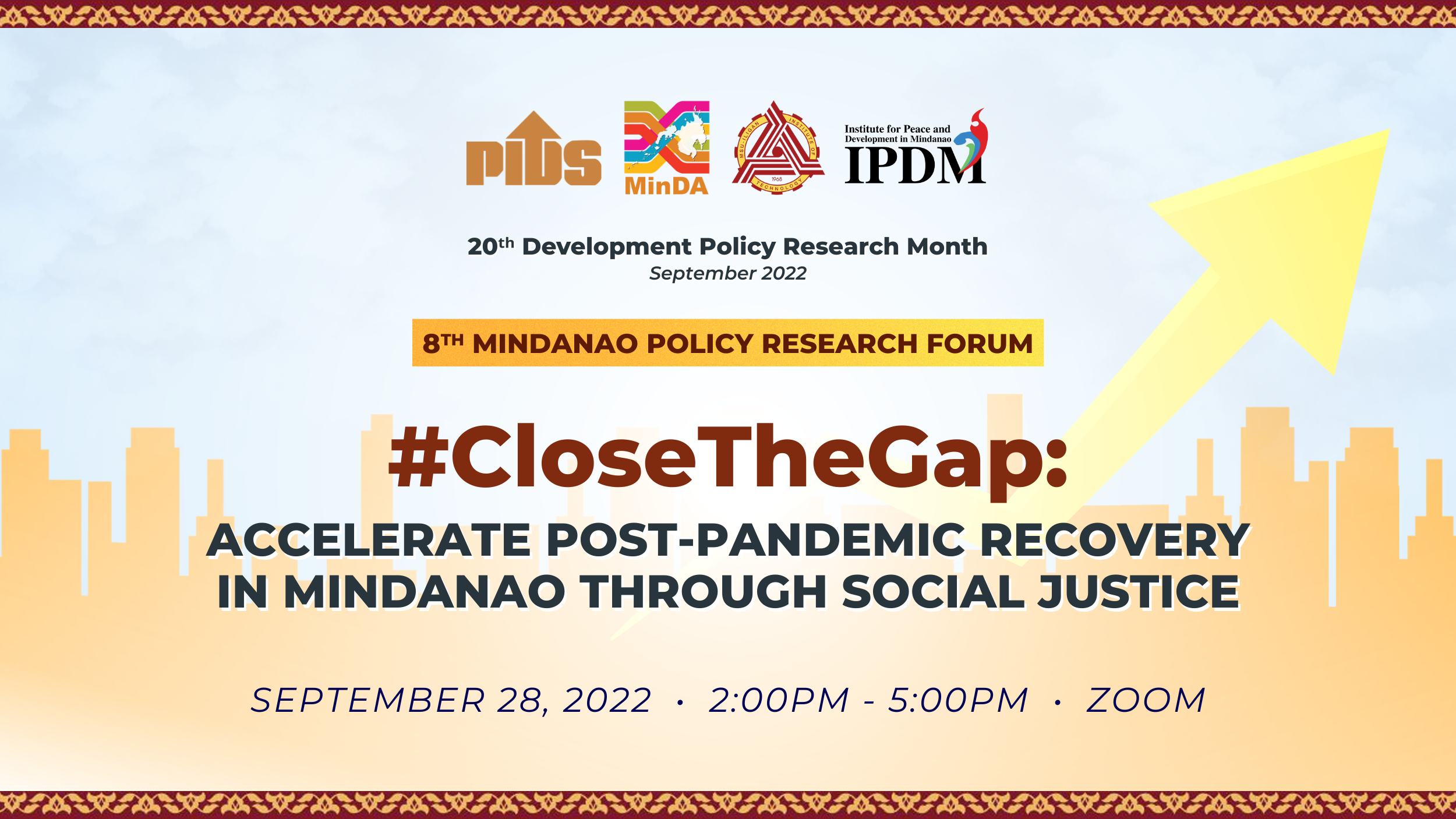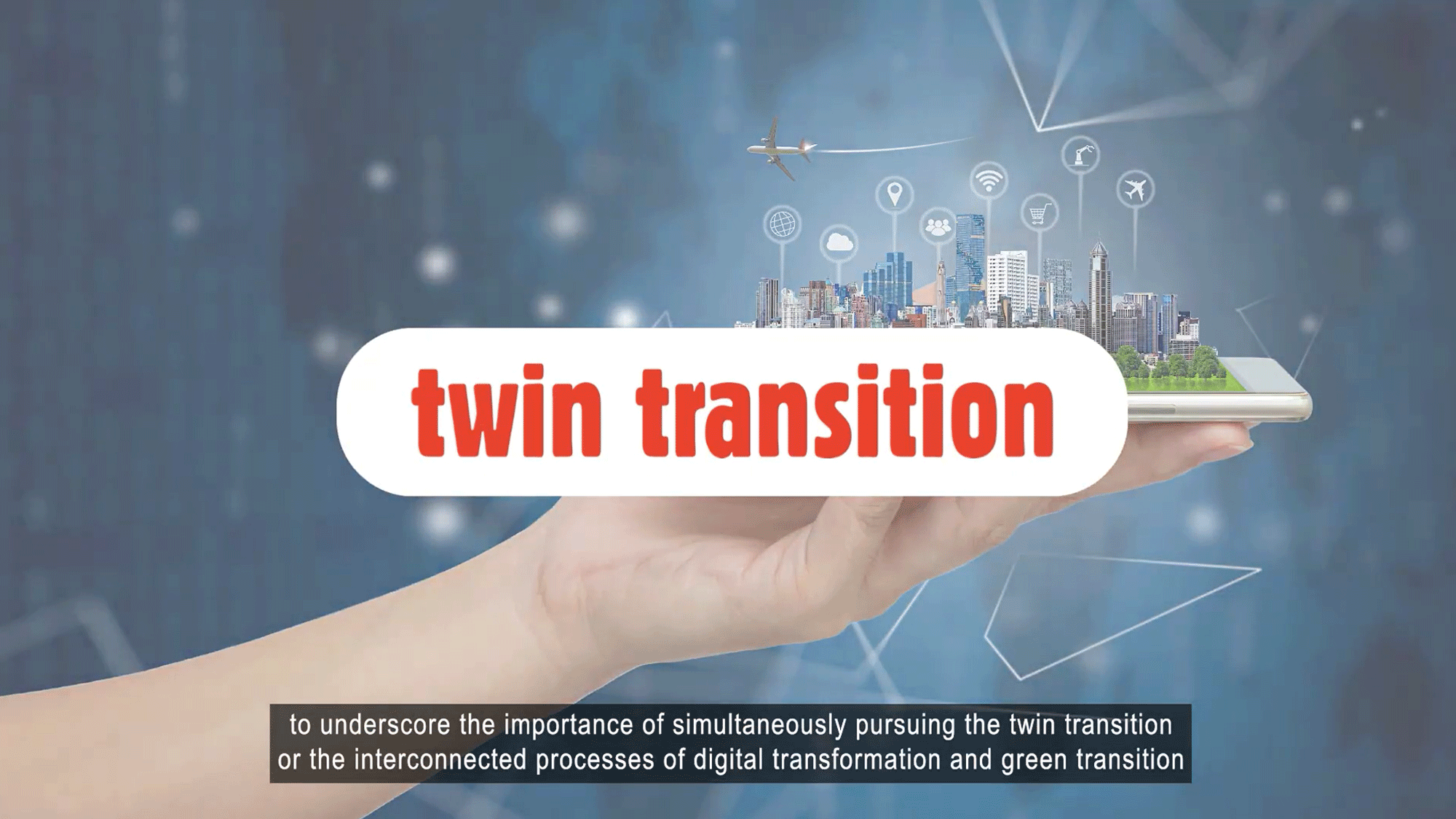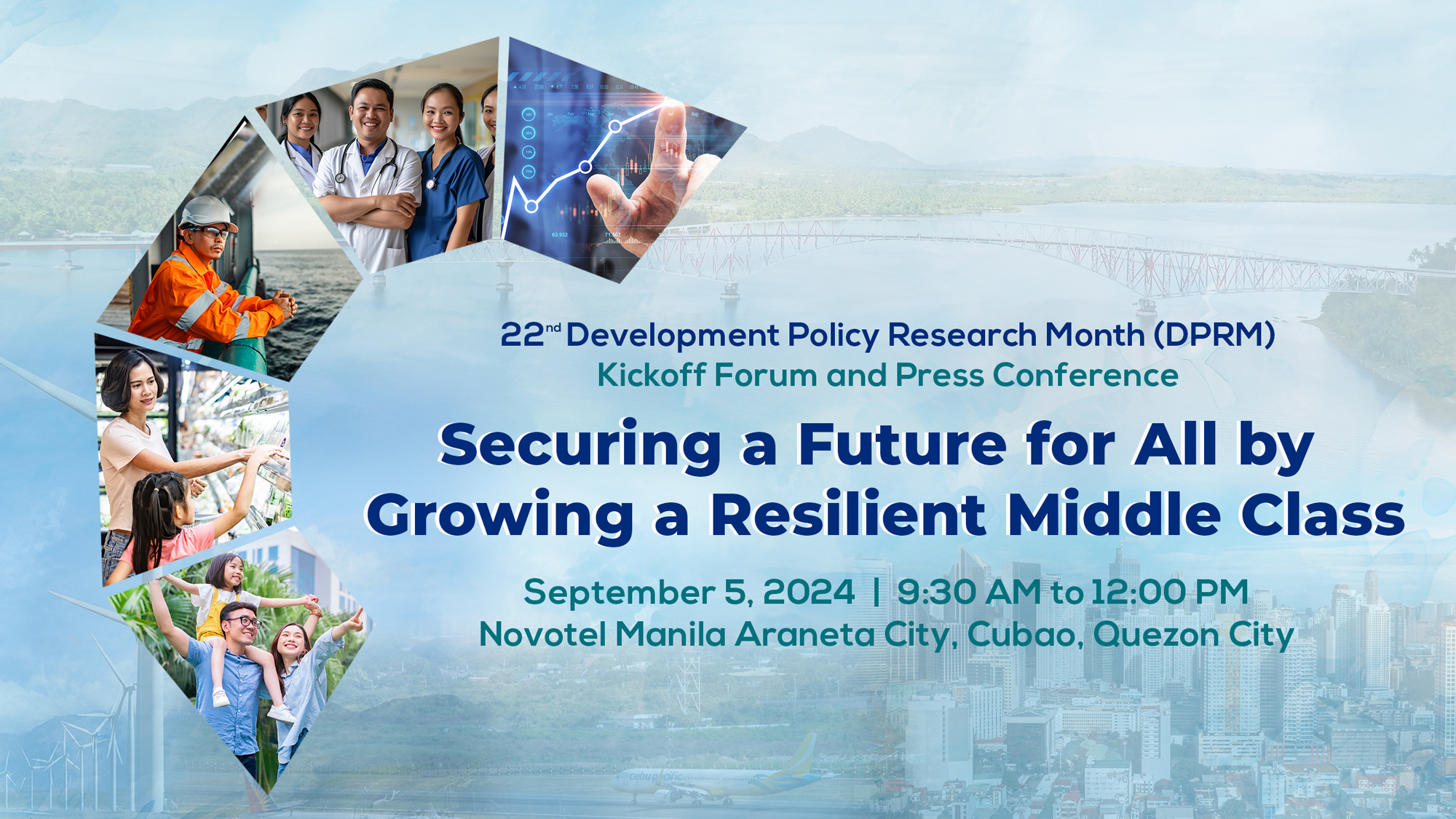
Experts and stakeholders at the 10th Mindanao Policy Research Forum (MPRF) highlighted the critical need for collaboration among government, the private sector, and civil society to effectively address the region’s unique challenges and unlock its full potential. Effective collaboration is needed in enhancing agricultural value chains to uplift low-income households, implementing matching grant schemes to foster enterprise development, and promoting significant investments in health and education to tackle malnutrition and poverty.
Themed “Navigating Global Trends: Mindanao’s Future, Opportunities, and Strategies for Expanding the Middle Class”, the forum was hosted by the Philippine Institute for Development Studies (PIDS), the Mindanao Development Authority (MinDA), and Mindanao State University – General Santos (MSU – GenSan).
In his presentation, PIDS Senior Research Fellow Dr. Roehlano Briones emphasized the critical role of agricultural value chains. He advocated for not only improving primary agricultural activities but also processing, marketing, and distribution to uplift the poorest communities. But Briones acknowledged, “it is more realistic to consider that the borderline poor and low-income households have a better chance of graduating to the middle class, thereby contributing to the ranks of a resilient middle class”.
Briones outlined innovative strategies for elevating individuals from low-income to middle-class status through enterprise development. He particularly focused on matching grant schemes, such as the Rural Agro-Enterprise Partnership for Inclusive Development and Growth (RAPID Growth) Project of the Department of Trade and Industry. Matching grants encourage beneficiaries to invest their own resources, fostering commitment and addressing market failures that hinder financing for rural enterprises. However, targeting and sustainability concerns highlight the importance of tailored assistance and access to finance for micro, small, and medium-sized enterprises.
Pointing to the socio-economic complexities of Mindanao, Dr. Mario Aguja, Dean of the College of Social Sciences and Humanities at MSU GenSan stated that despite being a land of promise, Mindanao is faced with high poverty rates, and inadequate access to education. He emphasized the necessity of collective effort to combat poverty, malnutrition, and underemployment. “There’s an emergence of a culture of poverty and a poverty of culture in Mindanao today. For four decades, what was once unacceptable has become the norm, including the malnutrition of children,” Aguja noted.
He called for substantial investments in health and education to disrupt the cycle of poverty and improve the people’s welfare and living conditions. He also critiqued the current education system for its low literacy rates, linking educational challenges to broader societal issues. To foster a just and humane society, Aguja emphasized the importance of collective engagement with communities.
Atty. Simon Zagado, representing Mindanao Affairs Committee Chairman Hon. Yevgeny Vincente Beja-Emano, further articulated the significance of agriculture and youth development in shaping Mindanao’s future. He identified the socio-economic challenges of high poverty and malnutrition rates, linking these issues to a lack of economic opportunities and peace instability. Zagado’s metaphor of Mindanao as “a poor man sitting on a mountain of gold” resonated, illustrating the untapped potential of the region. He committed to legislative efforts aimed at overcoming barriers to development and addressing the region’s real needs.
Engr. Mohajirin T. Ali, Director General of the Bangsamoro Planning and Development Authority, emphasized the importance of collective action in navigating the evolving global landscape, particularly for Mindanao and the Bangsamoro Autonomous Region in Muslim Mindanao (BARMM). He noted BARMM’s emerging role as a vital player in Mindanao’s development, highlighting rapid economic growth and significant investments. Ali underscored the need for inclusive economic policies, effective governance, and a culture of innovation to ensure that progress benefits all segments of society.
Watch the recording of the 10th MPRF at https://bit.ly/mprf2024. ###



